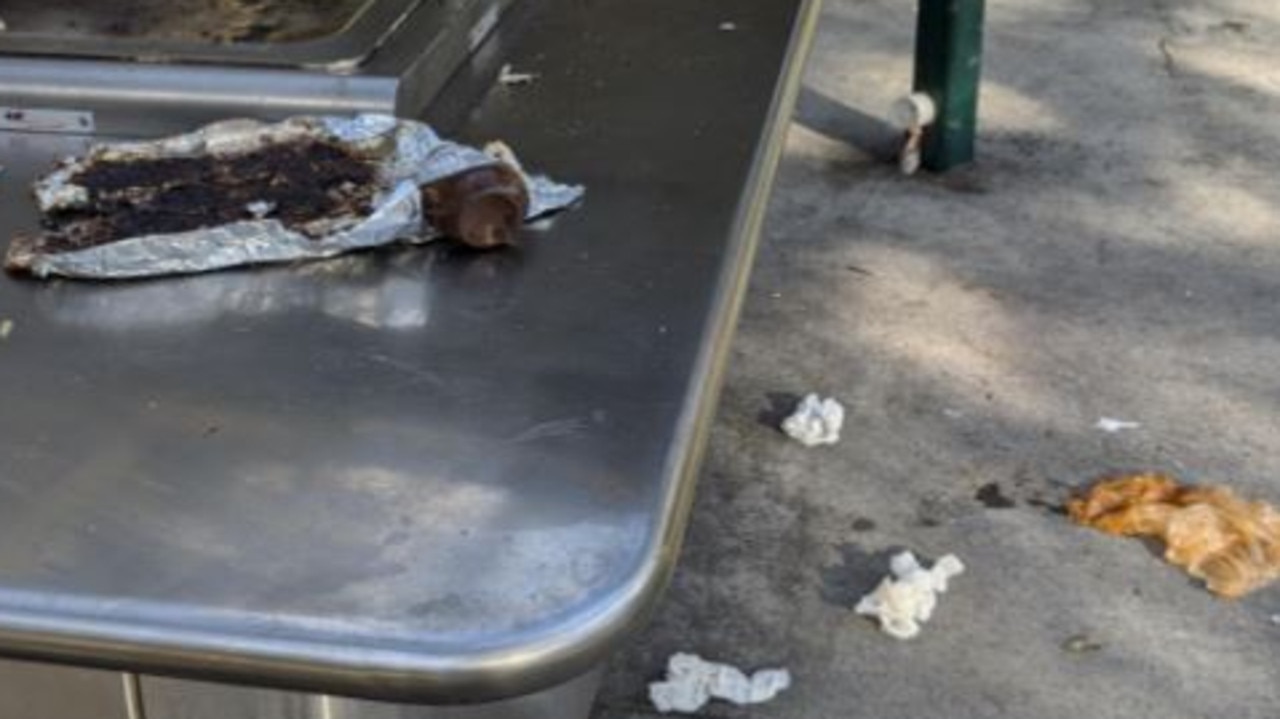Experts reveal how to smash year 12 maths exams
The head of mathematics at one of Brisbane’s top academic performing schools has provided insight for year 12 students and parents on how to tackle and nail the QCE maths exam paper.
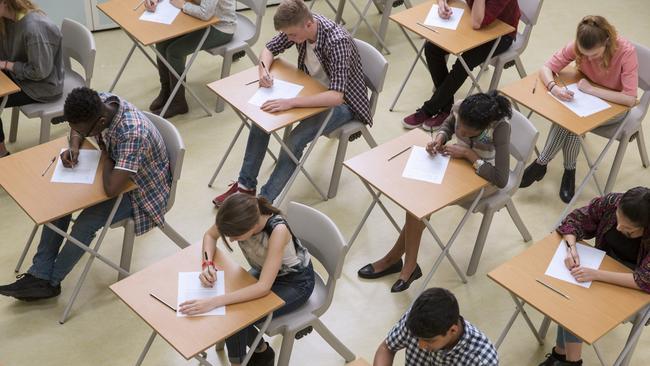
QLD News
Don't miss out on the headlines from QLD News. Followed categories will be added to My News.
A head mathematics teacher from one of Brisbane’s top academic performing schools has provided insight for year 12 students and parents on how to tackle and nail the QCE maths exam paper.
With General mathematics the second most enrolled in subject across Queensland – sitting at 20,633 students – The Courier-Mail spoke to Brisbane Boys’ College Head of maths Jeremy Hunter on how to approach the highly anticipated exam.
Scheduled to fall in the second week of external exams on November 1, we asked Mr Hunter frequently asked questions, including what to prioritise, how to answer questions and – for procrastinators – what to do if they haven’t started studying yet.
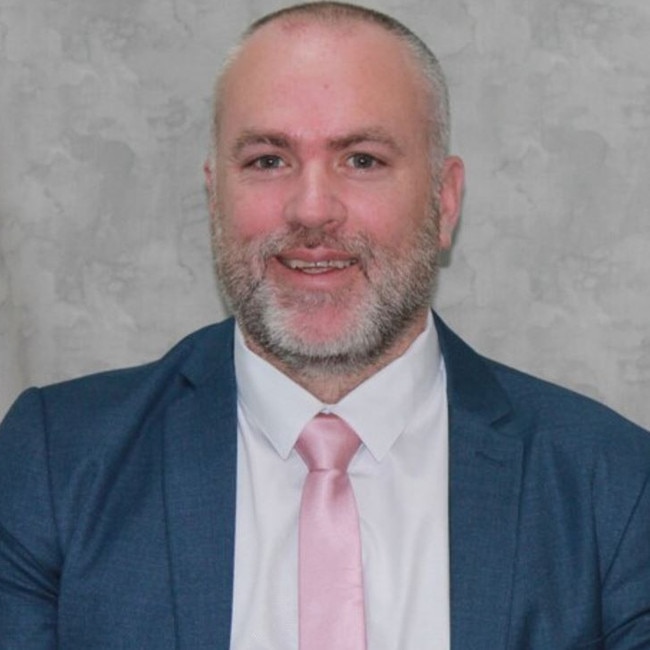
WHAT ARE YOUR TOP TIPS FOR STUDENTS?
“Students should really be delving into past exams really thoroughly and not just doing questions, which ultimately is the best way to study for maths, you’ve got to do maths. It’s not about reading, it’s not about looking over notes. It’s just about doing question after question after question. I often say to students, you know, you have to find the 10, find the 10 questions that you can’t do. And in order to find the 10, you might have to do 100 questions to find those 10 that you don’t know. And while analysing past year exams, look for those patterns. You know, is, is question one the same from year, year to year? And can you kind of predict that? You know, really good math students are those that can find the patterns.”
“It’s also about knowing your calculator really, really well, because General maths has allowed a calculator in both their exams, leaning on that, knowing how to use that really efficiently. It’s not about using it for the easy stuff, the maintain, you know, the mundane skills based stuff, because that can take up time. But it’s really about knowing when to use it well and when to not use it.”
“One of my pet peeves when I’m supervising exams for math’s is, you know, we say reading time starts now, and students have a quick flick and then sit there looking at their watch, going, Okay, I’m, you know, waiting for writing time. You know, you can answer 10% of the questions in reading time, though, as long as the answers are in your head, you can start preparing. You can really start mapping out how you’re going to come to the complex questions, how you’re going to strategically look at them. And also, I guess, from this point of time in time, have a strategy in terms of how you’re going to start writing time.”
“Don’t just do what everyone else is doing. Really think about what’s best for you.”
WHAT IF I HAVEN’T STARTED STUDYING YET?
“If you’re a student and you’re starting the study now, I would say, concentrate on skills. Concentrate on nailing the simple familiar part of the exam. The simple familiar part is 60 per cent of the exam. Every student should be getting 50 as a minimum out of those 60. You know, nail the simple math. It’s no point concentrating on the complex unfamiliar if you’re not nailing the simple familiar. So be really smart about it. Concentrate on basic skills. Again, look for those patterns from the last three or four years of practice of exams and see what sort of questions are routinely and habitually coming up and nail those.”
“Get some advice from teachers, from peers, about what sort of questions come up where all it is finding the right formula on the formula sheet and plugging the right values, because General maths is full of those sort of questions. There’s no lateral thinking in a lot of the questions. It’s just plugging the right information into the right formula, putting the calculator you get the right answer.”
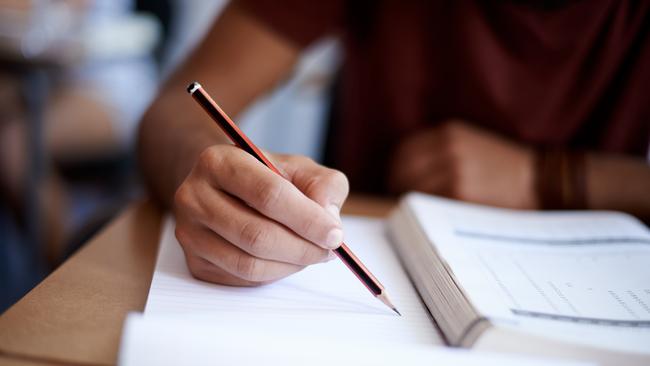
HOW CAN I NAVIGATE ALL OF THE CONTENT WHEN I STUDY?
“One of the first things I always recommend to my students is you have to know what’s on the exam. So you need to have a list of all sub topics, a really thorough list. And that’s not just the curriculum document. It’s not just the chapters out of the textbook that we’re using. It’s making sure that you combine all of that and have a really thorough list of what’s going to be on the exam. And then the next thing you need to do is, what I suggest, is give each sub topic a level out of five. You know, zero is, what the heck is that? I’ve never heard of that. And five is, I absolutely nail this. I know it so well. And then it’s a matter of, and again, this started 610, weeks ago. It’s a matter of lifting the zeros and ones to two so that everything’s at two, and it’s not Whack a Mole. If students aren’t acutely aware of what’s going on the exam, firstly and secondly, what their strengths and weaknesses are, or how they rank each topic, then it’s very difficult to ensure success on an exam, because that’s how surprises happen. That’s when students say, Oh, I studied the wrong stuff.”
WHAT IS THE BEST WAY TO ANSWER QUESTIONS?
“I think one thing that I always recommend and our staff do is read the question three times. So in reading time, you’ve read all the questions. When you get to do a question, you read it again. But really importantly, once you finish the question, you read it again, because that’s where you think about, have I actually answered the question?
Or have I included the right units? Have I looked at rounding? You know, it’s incredible how many really intelligent, strong students lose marks because they left off a meters, or they put it to three decimal places where the question asked for two.”
“If the question only has one mark attached, then the answer is all that is needed, and that’s part of being strategic as well. Don’t give more than that if you know that only an answer is needed, if it’s only worth one mark, yeah, but there’s only ever one mark allocated for an answer. So if questions were three, you know that the answer is worth one, then two marks have to be there for the working out.”
“I always recommend students keep a silly mistake journal, you know, just somewhere in your on your computer, on your book. I left off units, and in three weeks, if you do that seven times, your brain is so acutely aware of not leaving off units that it doesn’t become something you do.”
WHAT ARE SOME GOOD RESOURCES FOR STUDYING?
“We recommend getting exam study booklets that different publishers put out, and they’re basically a collection of past exam questions, and they don’t know they’re not only Queensland sourced. But they’re really good resources to pinpoint certain weaknesses in your in your study. So it might be a particular sub topic, and you can go to those practice booklets and actually pinpoint those. So there’s a lot of great resources that different organisations put out. There’s organisations like Queensland exam papers, NEAP, you know, there’s a lot of public publishers that produce their own material, like Cambridge Nelson, the publishers of textbooks often have companion resources that they put out specifically for exam preparation.”
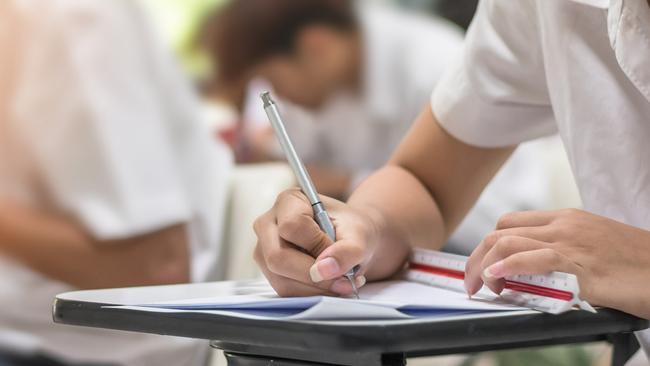
WHAT TOPICS SHOULD I PRIORITISE?
“It’s got to be a really balanced, you know, revision time, you’ve got to be, you’ve got to be really balanced across the topics. And it also depends where students have come from. You know, I find that if students have studied methods in the past and they’ve moved to general maths, their algebra is usually pretty good, but then they might struggle with something like networks, that’s a little bit more abstract, a little bit less algebra heavy, whereas students that have been general math students for a while, they might struggle a bit more with the algebra.”
“Often students will get in not really knowing what’s on the formula sheet, and they really struggle to link what’s on the formula sheet to what they’ve actually studied. So students should be really, really familiar with that formula sheet before going to the exam. Pick it to bits, analyse it, you know, really, make sure you know how to use it.”
WHAT IS SOME GENERAL ADVICE FOR STUDENTS?
“The obvious stuff is, get a good sleep, your nutrition, drink plenty of water, make sure you’ve got a routine. So in the weeks leading up to an exam, I’d recommend that students wake up at the same time every day, even on weekends, just to get that consistency and that routine.”
TOP TIPS LISTED:
Know your calculator
Look at past exam papers
Utilise reading time properly
Know the formula sheet back to front
Don’t just do what everyone else is doing – focus on you.
Triple-read the question
Be aware of the time
Don’t talk about the exam morning of or after its finished with your mates
Originally published as Experts reveal how to smash year 12 maths exams



